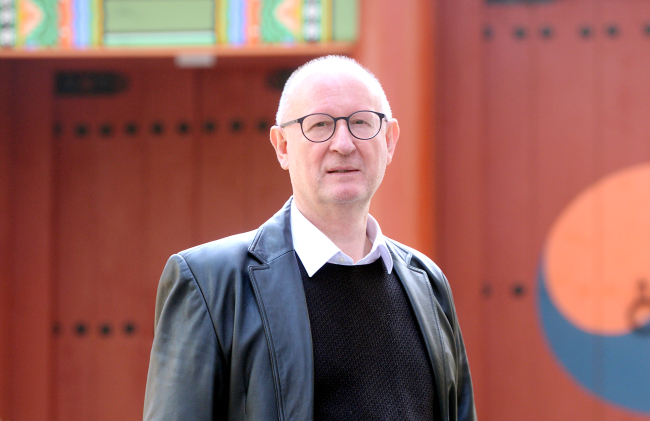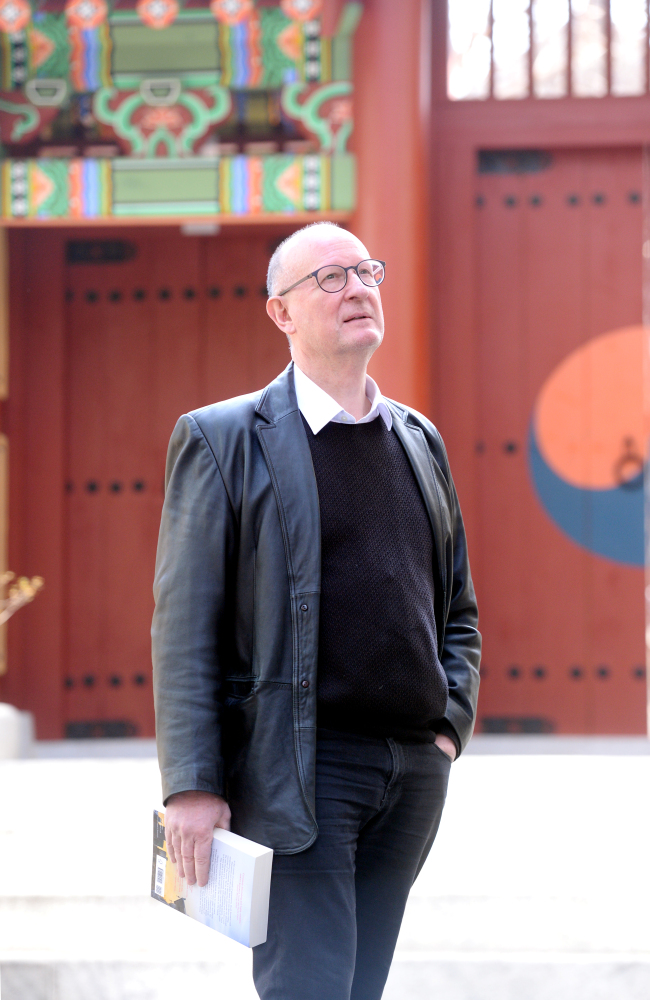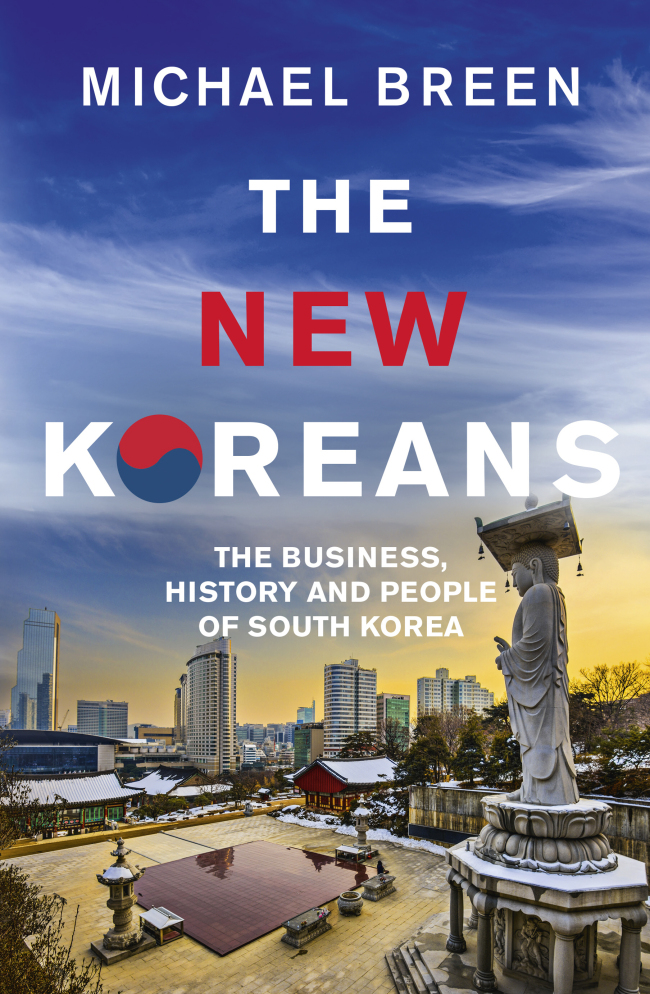Michael Breen, a consultant and a former journalist, has just published a new book on Korea as seen through his eyes.
“The New Koreans” was originally intended as a sequel to his previous book “The Koreans,” written in the late 1990s. But as is natural with the passage of time, much in Korea has changed and so has Breen’s perceptions and observations about the nation.
In his first book, Breen proposed the idea that Korea’s economic miracle, so-called the “Miracle on the Han,” led to the second miracle of democratization, which would eventually lead to the miracle of reunification of the two Koreas.
Today, the prospect of unification is as elusive as ever and South Koreans do not appear to be as preoccupied with the inevitability of unification. In his latest book, Breen notes the emergence of Korean culture on the world stage and marks the acceptance of Korean culture as part of global culture as the country’s third miracle.
However, the timing of the book’s release is rather unfortunate. It is hitting the shelves at a pivotal moment in Korean history: The fall of Korea’s first female president in a corruption scandal involving her longtime confidante Choi Soon-sil.
“At the timing of the writing, Park was facing an impending scandal. Since then she has been impeached,” said Breen during an interview with The Korea Herald on March 22 at his office in Seoul.
He plans to amend the book next year, he said. In the early hours of Friday morning, Park was arrested and detained on charges of bribery, abuse of authority, coercion and leaking government secrets.
“With each president, things have improved,” said Breen. However, during the Lee Myung-bak and Park administrations, things have taken “two steps backwards from the perspective of democracy,” he said. “They were two ‘successful’ people who, in their formative years, had lack of appreciation of democratic rights,” he added.
Although he was a student activist in college, Lee did not have the experience of living in a democracy. Park, on the other hand, is the eldest daughter of President Park Chung-hee, a former military general who came to power in a coup and ruled the country with an iron fist. Although he is credited with having set the path for Korea’s economic development, his 18-year rule, which came to an end when he was assassinated by his spy agency chief in 1979, was marked by human rights abuses and repression of the opposition.
 |
Michael Breen (Park Hyun-koo/The Korea Herald) |
Breen expressed concern about Park’s impeachment and its consequences for the future.
“I am surprised by the impeachment process,” he said. While many outsiders express admiration for the peacefulness of the rallies against Park as well as those held by Park supporters, diplomats are confused because it is not clear what she has done wrong, Breen noted. “Was the impeachment process democratic?” he asked.
“It will become a new habit,” Breen said, adding, “Something in the process is wrong.”
Breen also chided the media. “(The) media behaved very badly,” he said. “There was no perspective, context, just shouting in one direction. I don’t think that is justice.”
However, Breen does give credit to how the government performed during the period leading up to the impeachment and the period since then. “(The) running of the country was not affected by it. It was peaceful and didn’t destabilize the country” he said.
Breen was also optimistic that this episode in Korean history will be a positive one for the country in the long run, an opportunity to cut the collusion between chaebol and politicians. “The impeachment and the chaebol involvement provides an opportunity through crisis that wouldn’t have happened. I am optimistic on this account,” he said.
 |
Michael Breen (Park Hyun-koo/The Korea Herald) |
Korea watcher
Breen came to Korea in 1982 as a journalist on his way to Hong Kong with scant knowledge about the country. His earliest memory of Korea was a chart he made as a 7-year-old with countries, their capitals and their rivers.
“It is home now. I lived most of my life here. At the same time, I am an outsider,” said Breen, reflecting the sentiment expressed by many longtime foreign residents of Korea.
Over the decades, Breen has witnessed numerous changes here. One of the biggest changes, Breen said, is the ways of thinking which have changed with the increase in wealth and freedom. “Koreans think sort of like people in postindustrial societies,” he said. There is great concern with rights, identity politics, welfare and domestic violence, he noted.
A more immediately striking change is in the way people dress. “There is extraordinary change in how men have become fashionable. There has been an enormous transformation in men,” he said.
Another significant change Breen has detected is the attitude toward unification. In his early years in Korea, everyone was pro-unification, he recalled. “I never anticipated that people would be disinterested in unification,” he said, describing the current disinterest as a consequence of freedom.
In the early 1990s, kids started not approaching foreigners with a “hello” or even touching their hair.
Perhaps this is because so many Koreans now change their hair color -- blonde, platinum, red heads are not uncommon on the streets of Seoul -- he suggested. This change is also tied with Koreans’ greater familiarity with the outside world, another big change Breen has noted.
As a public relations expert, Breen offered a few observations about how the country promotes itself on the world stage. “Korea does not promote itself very well, this is because people responsible for it do not know what foreigners are interested in,” he said.
Breen cited the example of international conferences, a big part of the tourism industry. “Conferences are run very efficiently. However, content of the conferences are not very impressive, especially when put on by the government,” he said.
Meanwhile, the direct promotion of culture is also not done well, Koreans who come into contact with foreigners play a very important role, he said.
“Marketing and public relations are very different and you need to hire people who do public relations very well, he suggested. “You need to engage the right people and give them the freedom to do it,” he said, adding, “You need to get the government out of things.”
By Kim Hoo-ran (
khooran@heraldcorp.com)
 |
The cover of Michael Breen's “The New Koreans” |










